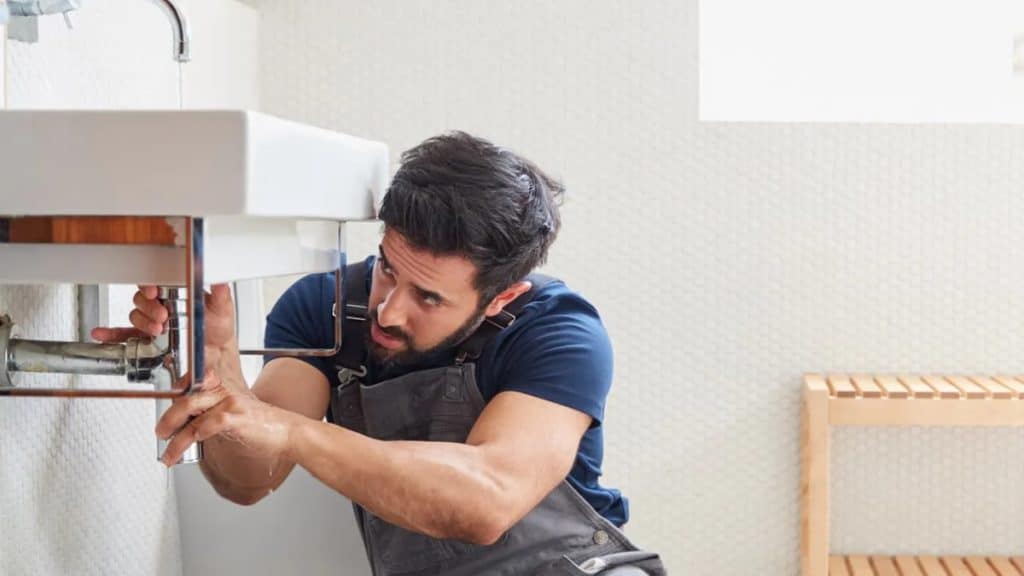Plumbing emergencies can strike at the most inconvenient times, causing stress, damage, and costly repairs. However, many common plumbing disasters are preventable with regular maintenance and a proactive approach. By understanding potential risks and taking preventative measures, homeowners can save time, money, and hassle.
This guide explores the most effective ways to prevent plumbing emergencies and ensure your home’s plumbing system remains in top condition year-round.
Understanding Common Plumbing Emergencies
Plumbing emergencies can range from minor inconveniences to major catastrophes. Knowing the common issues can help you identify and address potential problems before they escalate.
1. Burst Pipes
Cold weather, high water pressure, or aging pipes can cause bursts, leading to significant water damage.
2. Clogged Drains
Accumulated grease, hair, and debris can block drains, leading to backups and potential flooding.
3. Leaking Fixtures
Dripping faucets and leaking toilets waste water and can lead to higher utility bills if not addressed promptly.
4. Water Heater Failures
Sediment buildup or worn-out components can cause water heaters to malfunction, leaving you without hot water.
Preventative Measures for a Healthy Plumbing System
By adopting regular maintenance habits and addressing small issues early, you can avoid plumbing emergencies.
1. Inspect Pipes Regularly
Checking visible pipes for signs of wear, corrosion, or leaks is a simple yet effective way to prevent major problems. Look under sinks, around appliances, and in basements for damp spots or discoloration.
2. Monitor Water Pressure
High water pressure puts unnecessary strain on pipes and fixtures, increasing the risk of leaks or bursts. Use a pressure gauge to ensure levels stay within the recommended range of 40-60 psi.
3. Clear Drains Periodically
Prevent clogs by using drain screens to catch hair and debris. For kitchen sinks, avoid pouring grease or oil down the drain, as these substances can harden and create blockages.
4. Flush Your Water Heater
Sediment buildup in the water heater can reduce efficiency and lead to breakdowns. Flushing the tank annually removes debris and extends the unit’s lifespan.
Seasonal Plumbing Tips
Different seasons bring unique challenges to your plumbing system. Adjusting your maintenance routine accordingly can protect your home year-round.
Winter
- Insulate Pipes: Wrap pipes in unheated areas like basements and attics to prevent freezing.
- Disconnect Outdoor Hoses: Remove hoses and shut off outdoor faucets to avoid ice buildup.
Spring
- Check for Winter Damage: Inspect pipes and fixtures for cracks or leaks caused by freezing temperatures.
- Test Outdoor Plumbing: Ensure irrigation systems and outdoor spigots are functioning correctly.
DIY vs. Professional Maintenance
While some tasks are manageable for homeowners, others require professional expertise to ensure safety and efficiency.
Tasks for Homeowners
- Clearing minor drain clogs with a plunger or snake.
- Replacing worn-out washers in leaky faucets.
When to Call a Professional
- Persistent clogs that don’t respond to basic methods.
- Replacing major fixtures or upgrading old pipes.
Companies like Mesa Plumbing, Heating and Cooling provide expert solutions for complex plumbing issues, ensuring your system operates efficiently and reliably.
Recognizing Warning Signs
Early detection of plumbing problems can prevent emergencies. Look for these warning signs:
- Slow Drains: Indicates potential blockages in pipes.
- Discolored Water: Suggests rusting pipes or sediment buildup in the water heater.
- Unusual Noises: Banging or gurgling sounds may signal air pockets or pipe damage.
- Sudden Water Pressure Drops: Could indicate leaks or a failing water heater.
Addressing these issues promptly minimizes damage and repair costs.
The Financial Benefits of Preventative Maintenance
Proactive plumbing care isn’t just about avoiding inconvenience; it’s also a smart financial move.
Savings on Repairs
Minor repairs are far less expensive than addressing major emergencies like burst pipes or water damage restoration.
Lower Utility Bills
Fixing leaks and maintaining fixtures ensures efficient water usage, reducing monthly costs.
Sustainable Plumbing Practices
Incorporating eco-friendly habits into your maintenance routine benefits both your wallet and the environment.
1. Install Low-Flow Fixtures
Modern faucets, showerheads, and toilets reduce water consumption without sacrificing performance.
2. Upgrade to Efficient Water Heaters
Tankless water heaters only heat water when needed, saving energy and reducing waste.
3. Fix Leaks Promptly
Even small drips add up over time, wasting gallons of water and increasing utility bills.
MESA Plumbing can guide homeowners in selecting energy-efficient plumbing solutions tailored to their needs.
Emergency Preparedness
Despite your best efforts, plumbing emergencies can still happen. Being prepared can help minimize damage:
- Know Your Main Water Shut-Off Valve: In the event of a major leak, shutting off the water supply quickly is crucial.
- Keep Emergency Tools Handy: A plunger, pipe wrench, and plumbing tape can help with temporary fixes.
- Have a Reliable Plumber’s Contact Information: Establishing a relationship with a trusted plumber ensures help is readily available when needed.
Conclusion
Preventing plumbing emergencies is all about foresight and regular care. By adopting proactive habits, recognizing warning signs, and enlisting professional help when necessary, you can ensure your home’s plumbing system runs smoothly year-round.
With expert services from MESA Plumbing, homeowners can enjoy peace of mind knowing their plumbing is in capable hands. Prioritize maintenance today to save time, money, and stress in the future.
